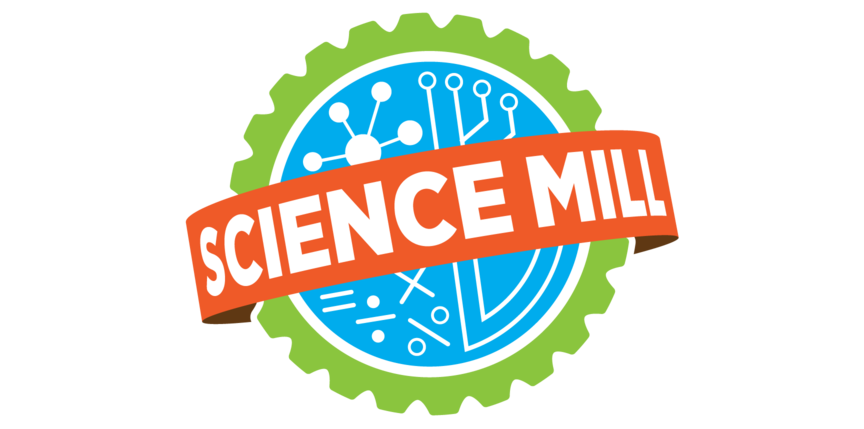Homeschool Day Additional Resources
Take your learning even further with these career connections & resources!
2024-2025
SEPTEMBER 2024: OUT OF THIS WORLD!
career connections
Astrogeologists are scientists that study the Earth’s moon, other planets and their moons, comets, meteorites, and asteroids. Also known as an exogeologist and planetary geologist.
Lunar Geologists study the evolution of the Moon over time using images, remote sensing data and lunar rock and soil samples that have been collected and returned to Earth.
Volcanologists are a type of geologist that studies and monitors volcanoes.
Software Engineers design, develop, test and maintain software applications. Software engineers apply engineering principles and knowledge of programming languages to build software solutions for the users.
further reading
Student Project: Make a Volcano | NASA/JPL Edu
What Is a Volcano? | NASA Space Place – NASA Science for Kids
How Do Volcanoes Erupt? | U.S. Geological Survey
CubeSats are a class of nanosatellites that use a standard size and form factor. The standard CubeSat size uses a “one unit” or “1U” measuring 10 cm3 and can be combined to make larger sizes up to 12U. CubeSats now provide a cost effective platform for science investigations.
2023-2024
OCTOBER 2023: ECLIPSES
CAREER CONNECTIONS
Astronomers study planets, stars, and other celestial bodies. They use ground-based equipment, such as optical telescopes, and space-based equipment, such as the Hubble Space Telescope. Some astronomers study distant galaxies and phenomena such as black holes and neutron stars.
Lunar Geologists studies how the Moon evolved through time by looking at images, remote sensing data and lunar rocks and soil to recover that information and put it all into context.
Astrophysicists study the universe to help us understand the physical matter and processes in our own solar system and other galaxies. It involves studying large objects, such as planets, as well as tiny particles.
FURTHER READING
November 2023: Light & Sound
Career Connections
Sound engineers maintain recording equipment and helps record audio. They often work in film and record dialogue and ambience. They may also work in a recording studio and assist other engineers.
Foley Artists devise and record the everyday sounds heard in films, television shows, and video games.
Sound Designer collect, edit, and create sound effects, ambient effects, and even music for video games, applications, or any other form of interactive media.
Seismologists study earthquakes and seismic waves.
Ultrasound Technicians use imaging equipment and soundwaves to form images of many parts of the body, known as ultrasounds. They are trained to acquire and analyze these sonographic images. These images are used to help doctors diagnose and treat many medical conditions.
DECEMBER 2023: CHEMISTRY
CAREER CONNECTIONS
Meteorologists study and forecast weather patterns. Understanding the relationship between air pressure, temperature, and volume is crucial in analyzing atmospheric conditions and predicting weather changes.
Scuba diving instructors teach individuals how to dive safely underwater. They need knowledge of air pressure and its impact on volume and temperature to ensure proper use and maintenance of scuba diving equipment.
Analytical chemists study chemical compositions and their reactions with other materials. They use chemical reactions and techniques to identify and quantify the composition of substances. Some examples of where you will find analytical chemists in the workforce are in forensic science, environmental monitoring, and pharmaceuticals to analyze samples and provide accurate results.
Pharmacologists research chemical compounds and the interactions of chemicals in pharmaceuticals and how they affect the human body. They use their knowledge of chemistry and chemical reactions to develop new medications and understand their mechanisms of action.
JANUARY 2024: ROBOTICS & CODING
CAREER CONNECTIONS
Computer Scientists create the code that robots need to do their job. Problem solves when issues arise. Create and adapt technology like coding languages and translational software.
Robotics Engineers are responsible for designing, developing, testing, and implementing robotic systems and automation solutions. They work on projects involving the creation of robots and their components, as well as their integration into various industries and applications. Robotics engineers can be found in the manufacturing, aerospace, and healthcare fields.
Software Developers are responsible for designing, coding, testing, and maintaining software applications. They work on projects involving the development of computer programs and software solutions.
Industrial designers enjoy imagining, sketching, and designing products they’d like to build or produce. They get to take art classes alongside mathematics and computer classes and use sophisticated computer programs to build/model and even 3D print their prototypes.
FEBRUARY 2024: ENGINEERING
CAREER CONNECTIONS
Mechanical Engineers specialize in mechanics. They research, plan, create, construct, and test sensors and devices that can sense and control both movement and heat. This includes crafting tools, engines, and machines.
Automotive Mechanics diagnose issues, perform repairs on vehicles, and offer basic maintenance and upkeep services for automobiles. They use specialized equipment like scissor lifts, wrenches, pliers, sockets, and ratchets to carry out their tasks.
Structural Engineers work to make sure buildings, homes, bridges, and other structures are strong and stable enough to withstand use and external environmental factors like weather, climate, and natural disasters (such as earthquakes)
Natural Hazards Engineers are structural and civil engineers who specialize in making sure buildings and structures are safe from natural disasters. These include earthquakes, floods, tsunamis, hurricanes, landslides, and other types of natural disasters.
Seismologists are scientists who specifically study seismic energy and movement beneath the Earth’s surface. They are the ones responsible for monitoring earthquakes and when they might happen.
MARCH 2024: STEAM
CAREER CONNECTIONS
Meteorologist - meteorologists are scientists that study short-term weather phenomena in localized areas. They monitor and observe common weather patterns such as rain, wind, snow, hail, and temperature.
Atmospheric Scientist - Atmospheric science is a broad category of science that studies the atmosphere. Atmospheric scientists study weather analysis and predictability, air quality, climate, and global change over short and long-term periods of time.
Architect - Use computer software to plan and design office buildings, homes, factories, and other structures.
Graphic Designer - Responsible for creating visual content to communicate messages and ideas effectively. They work in various industries, including advertising, marketing, publishing, and web design.
APRIL 2024: FORENSICS
CAREER CONNECTIONS
Biologist - A scientist that studies organisms, plant life, and ecosystems to learn about their interactions, habitat, and composition.
Forensic Anthropologist - Use and examine skeletal remains to answer questions when at crime scenes to determine who, how and for long the organism died. Anthro typically means a focus on humans or our closest relatives.
Forensic chemist - Forensic chemists use gas chromatography to investigate evidence from crime scenes. They can confirm the composition of biological substances but are also responsible for determining things like what chemicals were used to start a fire or whether or not something at the scene was adulterated with a foreign material. The pharmaceutical industry has even used chromatography to determine which antibodies are capable of neutralizing the Ebola virus in blood samples.
Entomologist - Studies insects, insect behavior, and their environment. They research insects' nutrition and growth and also how some insects interact with plants. There are several branches of entomology such as an agricultural entomologist, medical entomologist, and structural entomologist.
MAY 2024: SUSTAINABLE FUTURES
CAREER CONNECTIONS
Entomologist - Studies insects, insect behavior, and their environment. They research insects' nutrition and growth and also how some insects interact with plants. There are several branches of entomology such as an agricultural entomologist, medical entomologist, and structural entomologist. An entomologist that specifically studies bees is called a Melittologist.
Conservation Biologist - A biologist with a special focus on conservation of species of concern. They study organisms that are at-risk, threatened or endangered, and come up with ways that we can help. Some Conservation Biologists focus on how to help pollinators like native bees.









